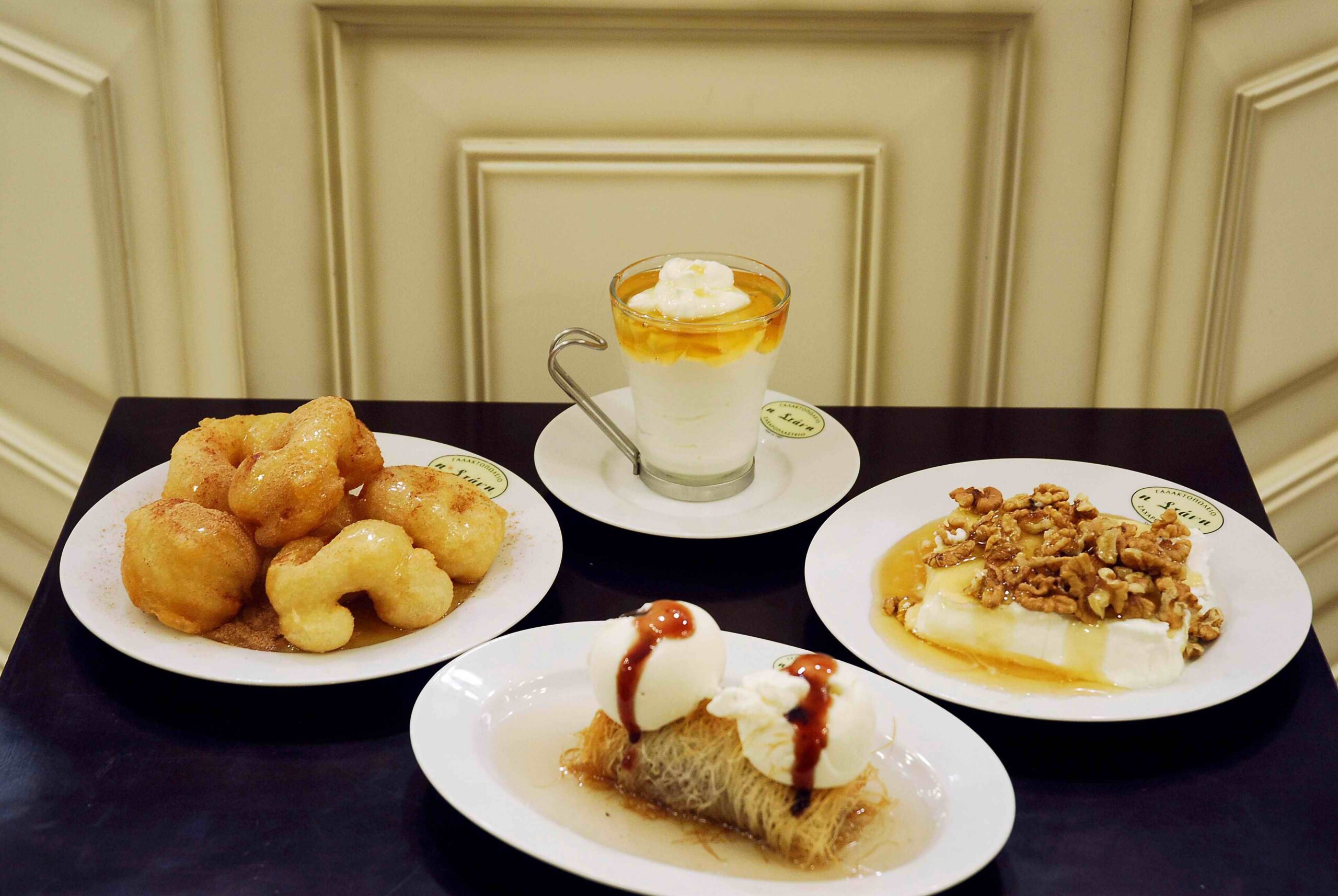

Stani dairy store in the centre of Athens is an institution approaching 100 years in operation.
Let’s explore what separates it from other dairy stores in the Greek capital.
06:30 – Arrival:
There is barely light and we are already on the road.
Our van struggles, driving over the stones and squirming on the loose gravel. I jump in the seat and wonder who has the guts to make this round trip every day before dawn for a couple of quarts of milk.
We have started at 5 for the stable of Georgios.
07:30 – Milking and loading:
I don’t know anything about animals but what I do know is that sheep have their own hooves, and they tarnish easily. Our presence has already scared them.
Georgios tells us that they will rarely sit down to be milked. They won’t force it either.
As they are passed one by one, some sheep anxiously offer their breasts and others panic.
What do two people do up here by themselves, next to the main transport hub of the country, Athens International Airport, and in the middle of nowhere?
Some call it a recipe for life, which has recently been linked to a new philosophy of consumption.
08:30 – Reception and check:
Ecology means economy.
First of all, if you are wasteful where you can be frugal, you are not an environmentalist. You are just a follower of a fad that takes shape in the murky landscape of eco-utopia.
Lower energy expenditure is the first axis of ecological consumption. The Americans call it “Zero Mile,” but “from production to consumption” seems more descriptive to me.
Georgios’ milk leaves Mesogeia at 7:30 in the morning, after first cooling to 3 degrees Celsius (from the 37 of the breast), and in an hour, it is at the dairy shop in Omonia—with the most basic logistics imaginable.
09:00 – Transfer to the cauldrons:
The small production of Stani (which has been there since Omonia was the navel of the city) is perfectly combined with the organic character of the milk that is the basis for all its products – and the second axis of this philosophy.
It is very difficult to argue in favour of standardised products in front of a yoghurt made today with milk that was milked a few hours ago.
If the term “organic” has any meaning, this is where the description ends.
11:00 – Serving:
Will “Zero Mile” save us? Local production is a statistical anomaly in the economies of scale that determine the global movement of products.
It will never compete with standardisation or replace mass production. And that’s okay.
Even if it manages to infiltrate our eating routine in an insignificant percentage, if it manages to keep our taste buds alive and desperate for something beyond the trivial, it will have accomplished its mission.
Or, at least, that’s how I see it: the guilt-free consumer of the standard, who often passes by Stanis to pamper himself with something truly exquisite.
Giorgos Franzeskakis is a columnist for Cantina. Translated by Paul Antonopoulos.
READ MORE: Focacceria Napul’e: Handmade focaccia and arancini in Athens.
Styliana Averkiou, a 25-year-old makeup artist and fiancée of Cypriot YouTuber and MEP Fidia Panayiotou,…
Maria Sakkari of Greece outclassed Jasmine Paolini 6-2, 6-1 in the round of 32 at…
Cracks in roads and homes in the Voutes area southwest of Iraklio, Crete, likely caused…
Nammos Resort AMAALA, Greece’s iconic beach club brand’s first international venture, will open in Saudi…
Klavdia Papadhópoulos will represent Greece at Eurovision 2025 with her powerful song Asteromáta, a tribute…
Greece is launching its first online platform allowing citizens to rate public services, aiming to…